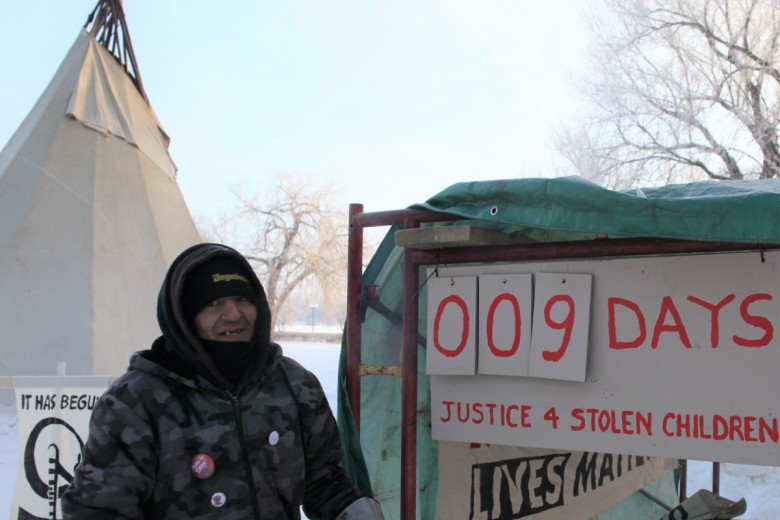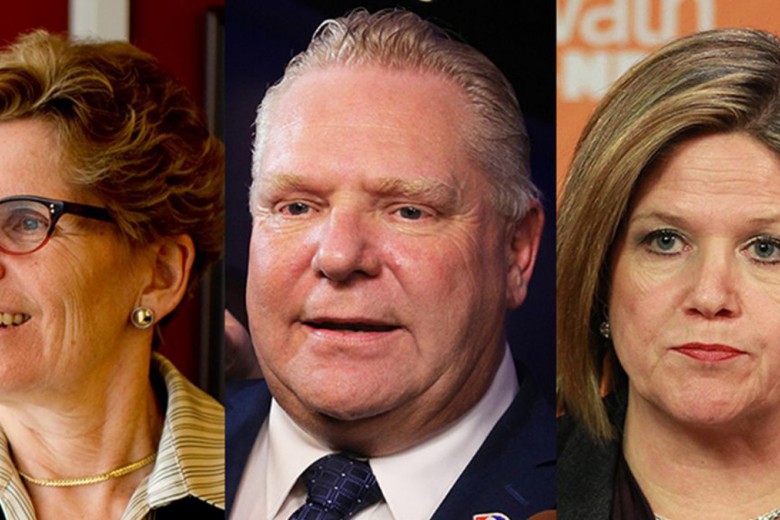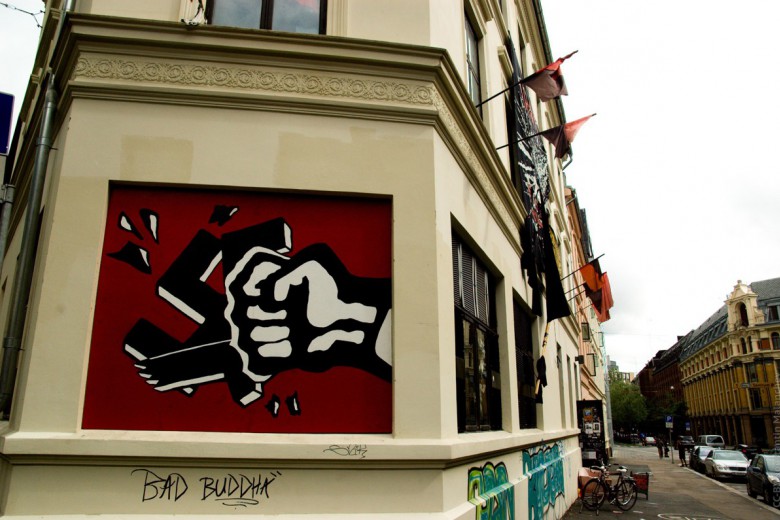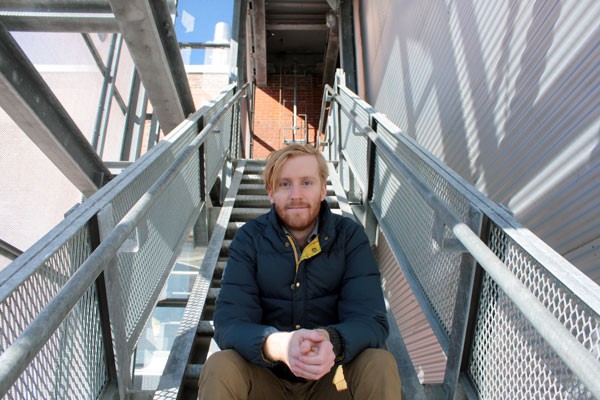
The first and only time he gave blood, Nick Shaw felt like a hero.
The Canadian Blood Services (CBS) advertised a clinic at his high school with posters, announcements over the PA system, and in-class talks by teachers and nurses. Blood donation was touted as a moral imperative. Lots of high school seniors planned to do it.
The 17-year-old saw it as a chance to contribute to some greater good.
At the clinic, Shaw completed a questionnaire and entered a private booth where a nurse asked him more questions about where he had travelled and whether he had tested positive for HIV or AIDS. Then she asked him, “Have you had sex with a man, even one time since 1977?”
The blood rushed to his cheeks, and his heart started to race. “No,” he quickly said.
His high school near Hamilton, Ontario, was brimming with homophobia. Shaw had accepted his attraction to men, but he didn’t plan to act on his feelings, and he certainly wasn’t going to tell anyone he was gay. He knew if he had sex with a man, he would be banned from giving blood.
Since the early 1980s, the blood service has maintained a lifetime ban against males who have sex with other males (MSM), phrased in such a way to exclude men based on behaviour rather than sexual identity. A man who has had sex with another man since 1977, even once, cannot donate blood because Canadian Blood Services contends these men are at a higher risk of contracting HIV.
Statistically, they’re right. Several studies from the U.S. and Canada confirm MSM donors are a higher risk group, and though the blood service tests every donation, they say HIV tests are never 100 per cent sure. Based on the same argument, Health Canada does not accept MSM organ or sperm donations.
Recently, though, the blood service decided to revisit its policy toward MSM donors. The organization is now looking into a five-to-10-year deferral period rather than a lifetime ban.
“I would hope that if we get permission from Health Canada to do this, we should be able to implement the change early in the fall,” says Dana Devine, CBS’s vice-president of medical, scientific and research affairs. “Hopefully [MSM donors] will be able to see this as step one down the path of getting to a better place.”
‘Who you are is wrong’
Years later, while he was completing his bachelor of science degree at Dalhousie University in Halifax, Shaw’s phone rang. It was a woman from the Canadian Blood Services calling for his roommate, who wasn’t home.
She engaged Shaw in conversation. He mentioned his blood type, the rarest kind: AB negative. They had a pleasant chat about giving blood and Shaw’s future plans, but then he asked her, “What about gay men and donations?”
“Have you had sex with a man, even one time, since 1977?” she asked.
“Yes,” Shaw replied truthfully.
The warmth left her voice. She told him he was barred from donating and she would remove him from the registry. He asked if there were any policy changes coming up. She said the CBS was always revisiting their policy. Their conversation ended abruptly, leaving Shaw with feelings of disappointment and sadness.
When he commented on the ban in 2010, Shaw said the policy confirmed at a deeper level that society sees something wrong with him because he is gay. He still feels that way.
“You tell yourself and people tell you that who you are is wrong, that you’re not good enough, and there’s something wrong with you,” he says. “That’s a fundamental fear that a lot of people carry, especially homosexuals.”
History of the ban
Today’s controversy began with an urgent decision 27 years ago. In charge of Canadian and American blood donations in the 1980s, the Red Cross did not properly screen donors. When the HIV-AIDS epidemic struck North America, thousands of blood recipients were infected with the virus and hepatitis C.
A wave of lawsuits hit the service. The Red Cross reacted in 1985 by banning blood from MSM donors in the U.S. and Canada. Back then, HIV was the gay plague, the gay cancer. Those who contracted it died within two years. In 1998, because of the scandal and to avoid political interference, Canadian Blood Services was formed as a separate and arm’s-length organization from Health Canada.
The path to change hasn’t come without a fight. CBS’s decision to revisit the ban comes after a high-profile End the Ban campaign by several advocacy groups and a court case that challenged the policy.
In June 2002, former York University student Kyle Freeman sent an anonymous email to CBS admitting he lied in the pre-screening tests and gave blood regularly as a sexually active gay man. In the email he condemned the policy, arguing that it discriminated against him. Claiming their screening process was “purposefully compromised,” the blood service went to court to find out Freeman’s identity from his Internet service provider. They claimed he put their patients at risk.
Freeman did not have HIV or AIDS, though one of his blood donations did test positive for syphilis. He said he protected himself and blood recipients by using condoms during sex. He waited six months before donating blood if he had an experience that put him at risk of contracting the virus, he said, and got tested. Current HIV tests detect the virus after three weeks. He said he adhered to the outdated precaution to make a point.
The CBS sued Freeman for negligent misrepresentation. Freeman filed a counterclaim against the CBS and Health Canada saying he experienced “humiliation, degradation and marginalization” from the MSM screening question. He claimed the lifetime ban on blood from gay men violated his Charter right to not be discriminated against based on his sexuality.
“It’s 2010,” he told the Globe and Mail. “It’s so saddening to see our government so hell-bent on discriminating against people.”
Justice Catherine Aitken held Freeman liable for $10,000 in damages that the blood service had spent to trace the donations he made over a 12-year period. In her ruling, Justice Aitken found the Charter of Rights and Freedoms does not apply to the CBS since it’s not a “government actor” and does not implement any specific government policies. The Charter, she wrote in her 188-page ruling, does not protect or promise a right to give blood.
“The Charter does not (and never was intended to) govern ‘private’ or non-governmental action,” writes Sean Foreman, a partner at Wickwire Holm in Halifax, in an email. “However, this does not mean that CBS can simply ‘discriminate’ against certain groups in all matters.”
Human rights codes and legislation still apply to the CBS’s private actions in terms of employment or hiring, he says, though they may not apply in accepting blood.
Though merited in the 1980s considering the scientific mystery shrouding the virus, Justice Aitken concluded in her ruling the lifetime ban “goes well beyond what current science suggests is necessary to protect public health.” She suggested the ban be reduced to a deferral period of 10 years.
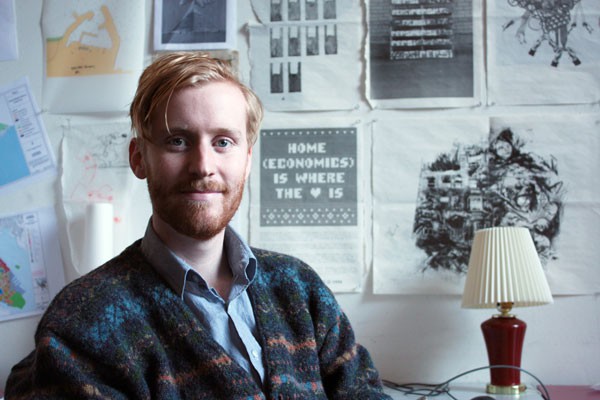
Crafting a fair policy
While Justice Aitken acknowledged there is no scientific basis for continuing the lifelong ban on MSM donors, Foreman doesn’t think she achieved a fair balance between protecting public health and equal rights for gay men.
“Regrettably, she was not willing to move beyond a restrictive test and application of the Charter and to move beyond the safety arguments put forth as a red herring to disguise old stereotypes and assumptions on the sexual practices and health risks of gay men,” writes Foreman, who is also a past chair of the Nova Scotia Rainbow Action Project and the Canadian Bar Association’s Sexual Orientation and Gender Identity Conference.
“In her ruling Justice Aitken specified that there is ‘no scientific justification for the 33-year deferral of men who have had sex with men,’ ” Foreman added. “This statement reinforces the Canadian Federation of Student/Egale/Canadian AIDS Society call for the deferral policy to be removed and replaced with a policy that identifies high-risk behaviours. The shift to a behaviour-based question would, according to top researchers identified in the ruling, lead to a safer blood supply.”
For the new CBS policy to be fair, Rebecca Rose, activist and Canadian Federation of Students (CFS) representative, says it must take other risk factors into account, such as safe sex practices, various risk levels for different sexual interactions, and the donor’s relationship status.
The CBS invited Rose to present to its board about the ban two months ago. She told them the deferral period should be the same as that of heterosexual donors.
“What I tried to drive home was that really a five-to-10-year deferral period isn’t much different than a ban. Because if you think about it practically, what that would mean is a sexually active queer man, or a man who’s had sex with other men, would have to abstain from sex for five to 10 years if they wanted to donate blood, which I think is unrealistic and unfair.”
Devine says the organization’s screening process isn’t subtle enough to take those behaviours into account.
“The first important thing to change is the paradigm of infinity to something that’s time based,” she says. “That’s a big change, and we have to start somewhere.”
‘Follow the science’
Shaw is out now. The 24-year-old is in his first year of a planning program at Dalhousie University. He says the school has a welcoming, inclusive environment. Four of the 10 guys in his class are out too. He still struggles with his sexuality, but less so now.
“To be told by a large organization that there is something wrong with you, it pushes on a sore spot in a lot of homosexual men, as it would with anyone. They’re reminded that the thing they’re fighting and struggling with the most is acceptance of themselves, and they’re told that [being gay] is not acceptable.
“But that’s not something I want to mix up with logic. That’s something I have to deal with myself, and it’s not necessarily the place of the blood service to deal with the emotional battle a lot of homosexual men are going through.”
Shaw likes the idea of the more nuanced behaviour-based risk assessment proposed by the CFS. He also appreciates the CBS’s goal of time-based deferral, but he says a five-to-10 year policy would exclude gay men unless they are celibate. The final policy should consider the higher risk factor of MSM donors, Shaw says, even if that means his demographic is deferred for longer than heterosexuals.
“Follow the science and don’t let the emotion get into the decision-making,” he says.
A shorter version of this story originally appeared at www.openfile.ca


